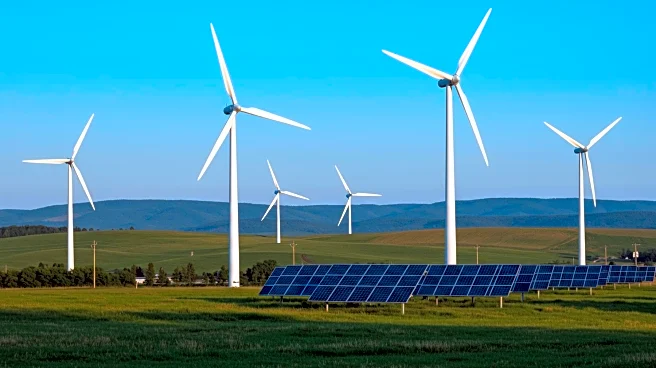What's Happening?
Oregon Attorney General Dan Rayfield, along with attorneys general and governors from 18 other states, has filed a lawsuit against the U.S. Department of Energy. The legal action challenges a new policy that limits funding for staff involved in sustainable energy and energy efficiency projects. The policy imposes a cap on 'indirect' and 'fringe' costs, such as salaries and benefits, to 10% of overall project costs. The states argue that this cap is arbitrary and unlawful, potentially leading to job losses and project terminations. The lawsuit was filed in U.S. District Court in Eugene, Oregon. The federal grants in question support various renewable energy initiatives, including electric vehicles, home weatherization, and energy affordability programs. Oregon received approximately $786,000 in federal grants last year, with nearly half allocated to indirect and fringe costs.
Why It's Important?
The lawsuit highlights the tension between state and federal authorities over funding allocations for sustainable energy projects. The cap on indirect costs could significantly impact the ability of states to maintain and expand their energy efficiency programs. States like Colorado and Minnesota face substantial financial losses, which could lead to staffing cuts and hinder their ability to meet statutory energy objectives. The outcome of this legal challenge could set a precedent for how federal agencies impose funding restrictions on state-managed projects, affecting the broader landscape of renewable energy development in the U.S.
What's Next?
The lawsuit seeks to overturn the funding cap, and if successful, it could restore previous funding levels for state energy programs. The case may prompt other states to reevaluate their funding agreements with federal agencies. The U.S. Department of Energy's response and potential negotiations could influence future policies on sustainable energy funding. Stakeholders, including state energy offices and environmental advocacy groups, are likely to monitor the case closely, as its outcome could impact the viability of ongoing and future energy projects.










